Jobs and Occupations
Ed McMahon’s WHAT DO YOU WANT TO BE WHEN YOU GROW UP?
Ed sings!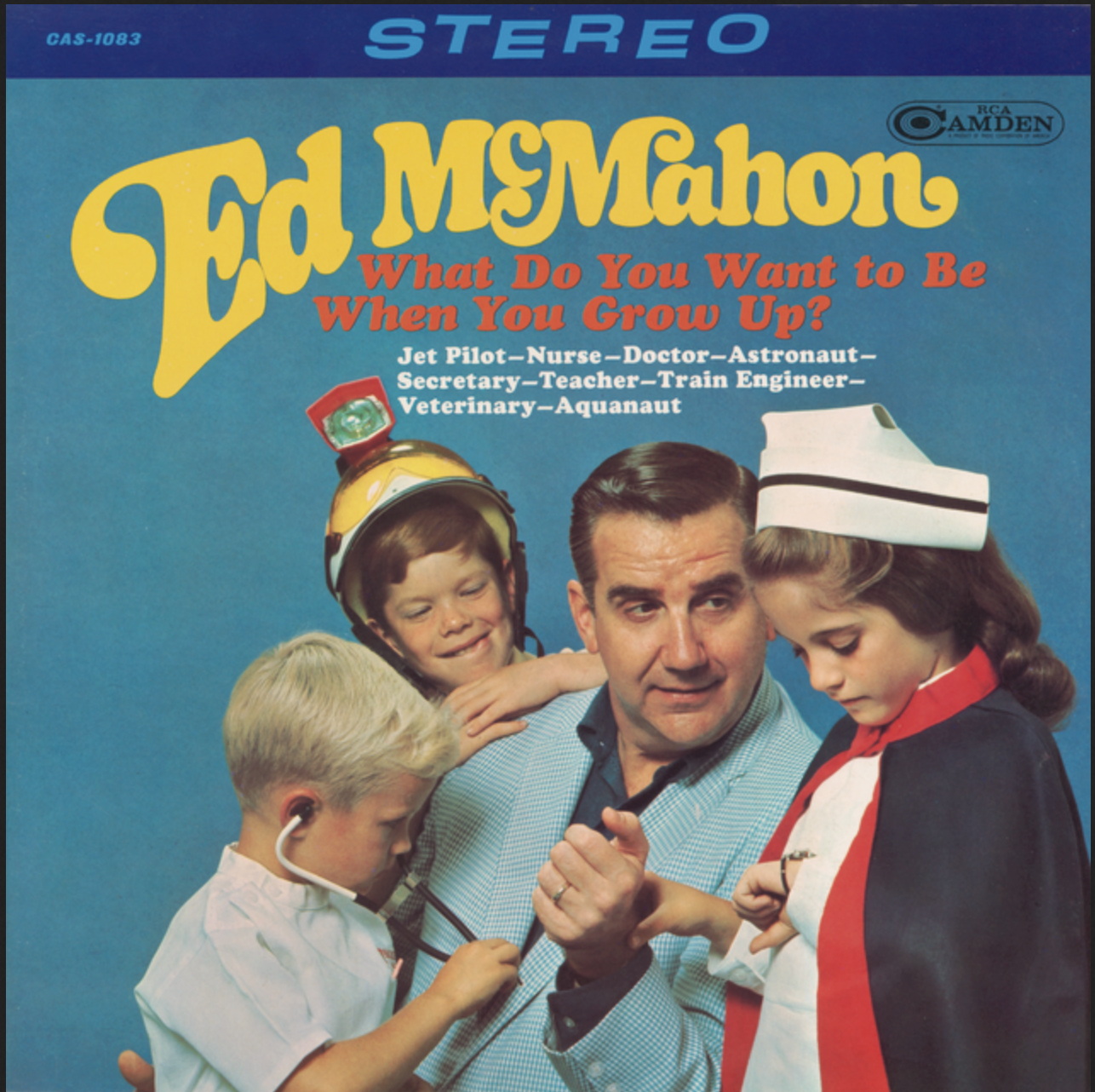
Posted By: Paul - Sun Sep 03, 2023 -
Comments (0)
Category: Jobs and Occupations, Television, Children, 1960s, Comedians
Linemen training
I assume bucket lifts have now made pole climbing a thing-of-the-past for linemen.
Popular Science - Feb 1951
Posted By: Alex - Wed Aug 30, 2023 -
Comments (4)
Category: Jobs and Occupations, 1950s
Miss Future Secretary
From what I can gather, the 'Miss Future Secretary' contest was launched in 1954 by the National Secretaries Association. Though I don't believe it was a national contest. Local chapters of the NSA selected winners from high schools.Miss Future Secretaries continued to be chosen for three decades, until the early 1980s, when being labeled a "future secretary" had come to sound more like an insult than a positive career aspiration.
Wikipedia notes that the National Secretaries Association changed its name in 1982 to Professional Secretaries International, and in 1998 changed it again to the International Association of Administrative Professionals.

Fresno Bee - Apr 21, 1957

Fresno Bee - Apr 24, 1959

Fort Lauderdale News Sun - Apr 25, 1965
Posted By: Alex - Fri Jun 30, 2023 -
Comments (0)
Category: Awards, Prizes, Competitions and Contests, Jobs and Occupations
The Littlechaps
Read an extensive history at the link, with many scary pictures.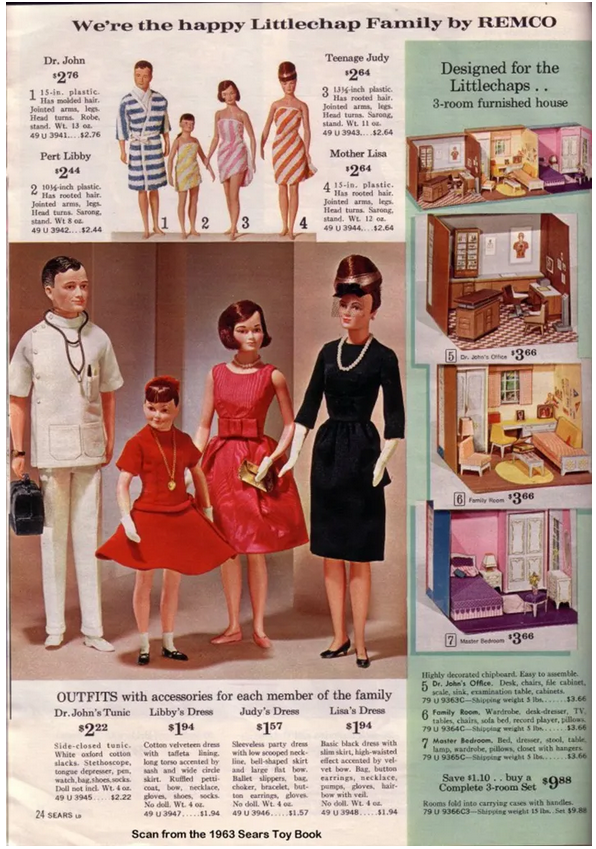
Posted By: Paul - Wed Mar 22, 2023 -
Comments (0)
Category: Enlargements, Miniatures, and Other Matters of Scale, Family, Horror, Jobs and Occupations, Toys, Dolls and Stuffed Animals, 1960s
The Making of An American
The immigrant's story: twas ever thus.
Posted By: Paul - Sun Mar 19, 2023 -
Comments (0)
Category: Emigrants, Immigrants and Borders, Ethnic Groupings, Jobs and Occupations, Languages, PSA’s, 1920s
Rent-a-Drunk
For only $3 a night, Colin White would rent out one of the drunks from his pub to liven up a party.So his employees could legitimately claim to be professional drunks.
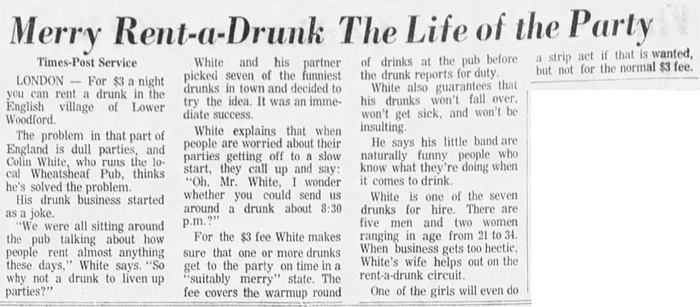
Asbury Park Press - Nov 26, 1971
Posted By: Alex - Wed Jan 11, 2023 -
Comments (3)
Category: Business, Inebriation and Intoxicants, Jobs and Occupations, 1970s
Miss Wisconsin Cheese
Marvene Fischer won the title of Miss Wisconsin in 1948. The Armour food company then decided to name a brand of cheese 'Miss Wisconsin' in her honor. It simultaneously hired her to serve as the traveling ambassador for the brand. In this position, she became known as Miss Wisconsin Cheese.She ended up working for nine years as Miss Wisconsin Cheese. During this time she reportedly traveled more than two million miles in 48 states, visited more than a thousand towns, and distributed over 15 tons of cheese samples in more than 8000 food stores.

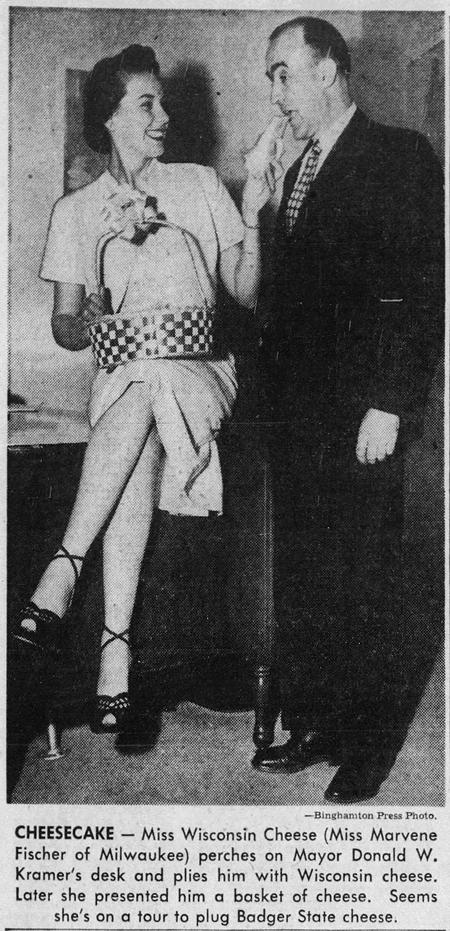
Binghamton Press and Sun-Bulleting - June 6, 1951
Here are some more details about her job from the Portage Daily Register (Dec 21, 1953):
She is greeted by mayors, governors, senators, congressmen, movie stars, chiefs of police, food editors, currently reigning local beauty queens, and other assorted celebrities.
Most of these meetings are highlighted by a formal presentation of a basket of cheese by Miss Fischer in exchange for a gift symbolic of the city being visited. She has received roses, posies, rhododendrons, wine, fruit, foam rubber pillows, cake, and Indian headdress, and any number of giant keys of the city. In St. Joseph, Mo., she was made a deputy sheriff. At the Rockingham Park race track, Miss Wisconsin Day was proclaimed in her honor. In San Francisco, she toured a submarine, and the event was officially publicized by the U.S. Navy.
Miss Fischer takes all this gracefully, in fact gives a continuous impression that it's all a lot of fun. Actually, a lot of good hard salesmanship is involved.
Miss Fischer does most of her traveling by air and prefers to travel alone. She says she has no need for a chaperone. "Why I have about 65,000 chaperones — all Armour employees," she says.
Glamour may be fleeting, figures Miss Fischer, but cheese is here to stay.
Unfortunately I haven't been able to find many details about what became of Marvene Fischer after her time as Miss Wisconsin Cheese. The only info I came across was a listing for a Marvene Fischer, age 94, living in Wisconsin. About the right age, and living in the right state — so I'm guessing it's her.

Miss Wisconsin Cheese in Denver, 1949
Posted By: Alex - Sun Aug 21, 2022 -
Comments (3)
Category: Awards, Prizes, Competitions and Contests, Food, Jobs and Occupations, 1940s
Steel Mill Archery
My mother's family lived in the Pittsburgh area, and a lot of them (including my great-grandfather) worked in the steel mills. But I hadn't known that the mills employed archers to ignite the gas coming out of the tall bleeder stacks.
Shenandoah Evening Herald - Dec 29, 1975
Posted By: Alex - Fri May 27, 2022 -
Comments (1)
Category: Jobs and Occupations, Industry, Factories and Manufacturing, 1970s
45 Jobs in 45 States
In January 1939, Lyra Ferguson of Missouri left her job as a church secretary and took off on a tour of the United States. Her goal was to spend a week working in all 48 states. Alaska and Hawaii weren't yet states, so she didn't have to worry about those. She was equipped with only "a new automobile, a small wardrobe, a little pistol and $200." I'm not sure of her exact age, but news reports said she was "over 40."She made advance plans to secure a job in a handful of states, but mostly she just arrived and tried to find employment. She also tried to find jobs in industries that seemed representative of each state.
Ultimately she managed to find one-week jobs in 45 states but failed to get work in New York, Nevada, or Arizona.
Her plan had been to write a book about her adventures, but in a later interview she said her attempt at a book was "terrible." So that plan fell through.
However, she did take film footage of her entire journey and later edited this together into a movie which she showed to various groups. Unfortunately I can't find any evidence that this movie still exists.
Below is a list of her jobs in 42 states. I couldn't find any info about her jobs in Arkansas, Colorado, or West Virginia.
- Alabama: performed at the assembly exercises of the Tuskegee Institute
- California: worked for an overall company at the San Francisco fair
- Connecticut: typewriter factory
- Delaware: tanned kid skins in a tannery
- Florida: packed oranges
- Georgia: cafeteria
- Idaho: dug potatoes
- Illinois: made wax fruits and flowers
- Indiana: manufactured refrigerators
- Iowa: pen factory
- Kansas: packed dog food
- Kentucky: ironed shirts in a laundromat
- Louisiana: packed shrimp
- Maine: helped out in a lighthouse
- Maryland: tea packing factory
- Massachusetts: served as attendant in an insane asylum
- Michigan: maid on a Great Lakes steamer during tulip festival
- Minnesota: sewed buttons on suits
- Mississippi: shucked oysters
- Missouri: social hostess at a hotel
- Montana: cooked on a dude ranch
- Nebraska: booked well-known artists for an agency
- New Hampshire: paper factory
- New Jersey: cosmetics factory
- New Mexico: sewed labels on ties made by Native Americans
- North Carolina: weaved homespun suiting
- North Dakota: picked chickens
- Ohio: worked in the printing room of a newspaper
- Oklahoma: wiped windshields at a gas station
- Oregon: packed salmon
- Pennsylvania: made chocolate candy at Hersheys
- Rhode Island: baking powder factory
- South Carolina: textile industry
- South Dakota: took pictures of the Black Hills for the association of commerce
- Tennessee: washed turnip greens
- Texas: delivered packages during the Christmas holidays
- Utah: wove blankets in a woolen mill
- Vermont: helped make maple syrup
- Virginia: weighed peanuts
- Washington: worked at a general store in a logging camp
- Wisconsin: milked cows for a dairy
- Wyoming: worked at Yellowstone
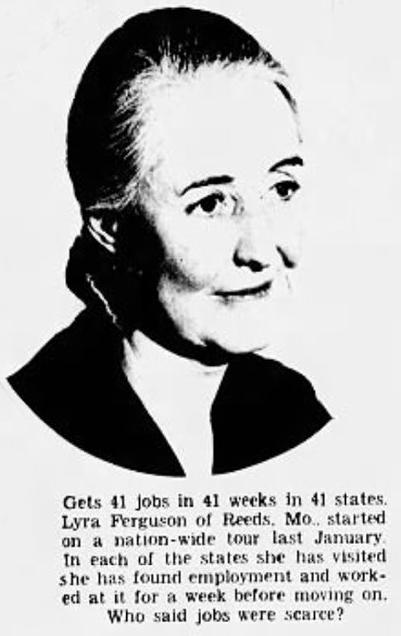
Pittsburgh Press - Dec 24, 1939
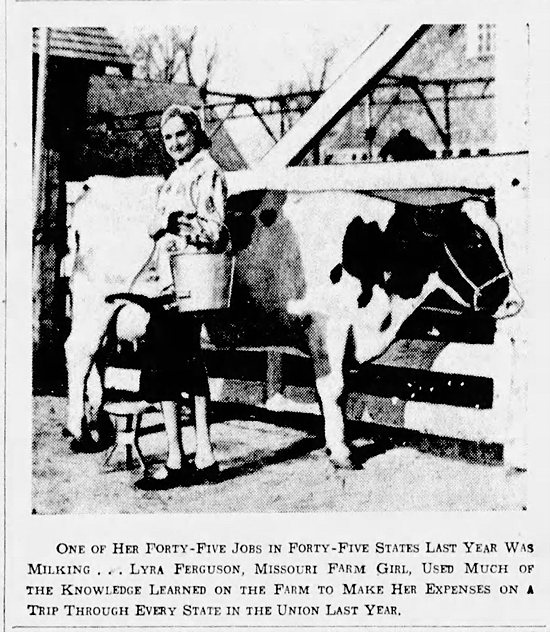
Weekly Kansas City Star - May 8, 1940
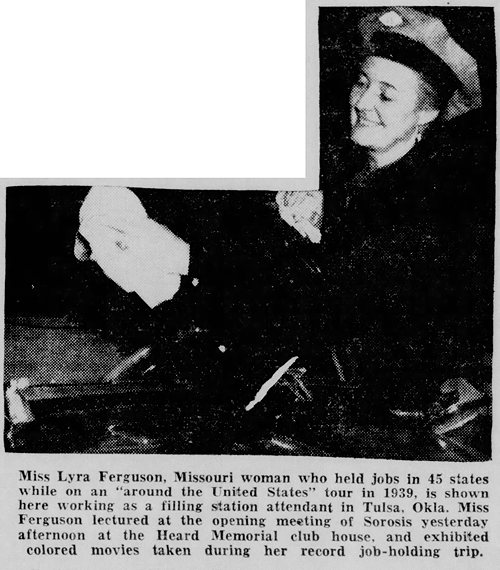
Sedalia Democrat - Sep 23, 1941
The only follow-up info I can find about her was that in 1956 she had just returned home from a world tour during which she collected souvenirs from the countries she visited. She obviously really liked to travel!
Posted By: Alex - Sun Jan 23, 2022 -
Comments (9)
Category: Jobs and Occupations, Travel, Tourists and Tourism, 1930s
Wrinkle Chaser
Unusual job: A wrinkle chaser uses a hot-air jet to 'chase' wrinkles out of leather boots and shoes. This is done using a wrinkle chaser machine.
Tacoma News Tribune - Jan 6, 1957
Posted By: Alex - Sun Aug 15, 2021 -
Comments (1)
Category: Jobs and Occupations, Shoes

| Who We Are |
|---|
| Alex Boese Alex is the creator and curator of the Museum of Hoaxes. He's also the author of various weird, non-fiction, science-themed books such as Elephants on Acid and Psychedelic Apes. Paul Di Filippo Paul has been paid to put weird ideas into fictional form for over thirty years, in his career as a noted science fiction writer. He has recently begun blogging on many curious topics with three fellow writers at The Inferior 4+1. Contact Us |




